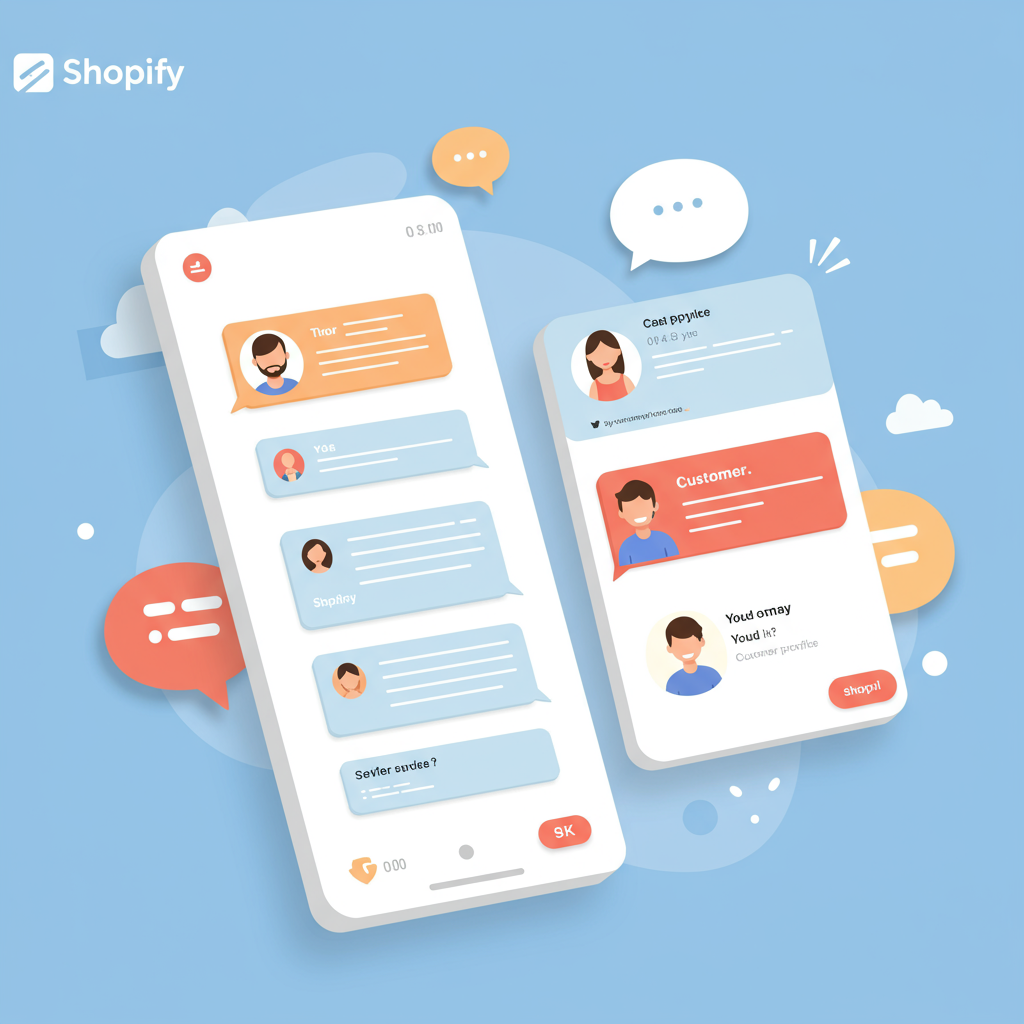Discover how the right helpdesk app can transform your Shopify store’s customer service, boost loyalty, and drive sales.
As a Shopify merchant, I’ve learned firsthand that exceptional customer service isn’t just a nice-to-have; it’s an absolute necessity.
In today’s competitive e-commerce landscape, customers expect quick, personalized, and efficient support.
This is where a dedicated helpdesk app becomes your most valuable ally.
I’ve spent countless hours researching, testing, and implementing various solutions to find what truly works for Shopify stores.
My goal with this article is to share my insights and help you navigate the crowded market of helpdesk applications.
A robust helpdesk app centralizes all your customer interactions, whether they come from email, live chat, social media, or phone calls.
It streamlines workflows, automates repetitive tasks, and provides your team with the tools they need to deliver stellar support.
But with so many options available, how do you choose the best one for your unique Shopify business?
From my experience, the first step is to understand what key features are non-negotiable for a Shopify-centric helpdesk.
Firstly, deep Shopify integration is paramount. You need an app that can pull customer order history, shipping details, and product information directly into the support ticket.
This saves your agents immense time and allows them to provide context-rich answers without switching between multiple tabs.
Secondly, multi-channel support is crucial. Your customers reach out through various platforms, and your helpdesk should be able to capture and manage all these conversations in one unified inbox.
Think email, live chat on your store, Facebook Messenger, Instagram DMs, and even WhatsApp.
Thirdly, automation and AI capabilities are game-changers. Canned responses, automated tagging, routing rules, and even AI-powered chatbots can significantly reduce response times and handle common queries.
This frees up your human agents to focus on more complex or sensitive issues.
Reporting and analytics are also vital. I always look for apps that provide insights into agent performance, common customer issues, and overall support efficiency.
These metrics help you identify bottlenecks and continuously improve your service.
Scalability is another key consideration. As your Shopify store grows, your customer support needs will evolve.
Choose an app that can grow with you, offering advanced features and increased capacity as your team expands.
Finally, ease of use and a clean interface are important for agent adoption and productivity.
A clunky or complicated system will only frustrate your team and hinder their ability to provide excellent service.
Now, let’s dive into some of the top helpdesk apps that I’ve found to be particularly effective for Shopify merchants.
Gorgias is often hailed as the king of e-commerce helpdesks, and for good reason.
It’s built specifically for online stores and boasts incredibly deep integrations with Shopify, allowing agents to edit orders, issue refunds, and even create new orders directly from the helpdesk.
I’ve found its automation features, like auto-responses and sentiment analysis, to be incredibly powerful for handling high volumes of inquiries.
Zendesk is a powerhouse, a comprehensive solution that can handle virtually any customer service scenario.
While it’s more enterprise-grade and can be complex to set up, its robust features, extensive integrations, and scalability make it a strong contender for larger Shopify stores or those with diverse support needs.
Freshdesk is another popular choice, offering a balanced set of features at competitive pricing.
It’s user-friendly and provides excellent multi-channel support, automation, and reporting.
I’ve seen many growing Shopify businesses find Freshdesk to be a perfect fit as they scale.
Help Scout focuses on delivering a human-centric customer experience with a simple, intuitive interface.
It’s known for its shared inbox model, which makes collaboration among support agents seamless.
If you prioritize simplicity and a personal touch in your customer interactions, Help Scout is definitely worth considering.
Reamaze is another e-commerce-focused helpdesk that I’ve been impressed with.
It offers live chat, email, social media integration, and even push notifications for abandoned carts.
Its built-in CRM features and proactive messaging capabilities can be a huge asset for Shopify merchants.
Richpanel stands out with its AI-powered self-service portal and advanced automation.
It’s designed to deflect common queries and empower customers to find answers themselves, significantly reducing ticket volume.
For high-volume Shopify stores looking to optimize efficiency through self-service, Richpanel is a strong contender.
When making your final decision, I recommend assessing your current support volume, team size, budget, and future growth projections.
Consider which channels your customers primarily use and what level of automation you need.
Most of these apps offer free trials, so take advantage of them to test the waters and see which one feels right for your team.
What are your thoughts on this article? Have you used any of these helpdesk apps, or do you have other recommendations for Shopify merchants?
Ultimately, investing in the right helpdesk app is an investment in your customer relationships and, by extension, your business’s long-term success.
It’s about building loyalty, reducing churn, and turning satisfied customers into brand advocates.
Choose wisely, and watch your Shopify store thrive with exceptional customer support.






